- Home
- Facilities listing
- Fire school
Fire school
Our purpose built fire school provides a realistic but safe environment in which seafarers can learn the vital techniques of fighting fires at sea.

About the fire school
Fire ground
The fire ground covers an area of approximately 700 square metres and contains two large three-storey training units: a ‘hot’ unit for live fire training and a ‘cold’ unit that serves a multi-role facility.
The facility is also equipped with a wide range of fire fighting equipment commonly found on board ship - from different types of nozzles to fixed foam monitors - all of which enables students to undertake practical exercises.
Many different types of fire, such as wood and liquid fires, and electrical equipment to chip pan fires, can be simulated externally in a variety of scenarios, giving students a feel for real fires and the confidence to know how to react in a real emergency.
The fire pit can also simulate, through LPG, very large oil fires, allowing students to practice the different techniques for protection and extinction in a controlled safe environment, whilst still experiencing the effects of the heat and smoke.
Other larger scale equipment includes a leaking gas flange where LPG is ignited; fires under cowlings, where access is limited; and a large flame screen, where kerosene is ignited giving a large liquid fire scenario.
The fire ground is also equipped with a mock-up helicopter where specialist fire training can be undertaken in a number of scenarios.
The ground has its own fire main with a number of hydrants run from a local system, and pump where recycled water is utilised for all fire fighting operations. Any run off water is collected in the ground and cleaned through a series of separators before being returned to the local water course.
Search and rescue unit
The 'cold' training unit is a multi-role facility where a wide range of training can take place, including:
- Fixed installation demonstration: the unit has a variety of fixed systems that can be demonstrated on live fires and viewed by students through an observation window.
- Enclosed space training: simulated spaces, tanks and double bottoms allow students to practice all aspects of enclosed space entry and rescue training in a realistic environment.
- Offshore training: the adaptable layout of the unit allows conditions/routes to be altered inside and cosmetic smoke added to provide a training tool for those required to undertake training in the use of smoke hoods.
- General ship training: the unit gives a range of additional scenarios for casualty rescue and general self-rescue for use in courses which can be tailored to individual customer requirements.
Live fire unit
The three-storey ‘hot’ training unit provides a number of training opportunities and scenarios for students to learn a variety of fire fighting techniques.
The unit is split into a number of different spaces commonly found on board vessels, from cabins to the engine room. The hot unit utilises real fires of different types and intensity in which students are subject to the actual effects of heat, humidity and smoke in a truly realistic environment.
There are also a number of access and egress points, hatches and ladders, and crawl spaces, all similar to what can be found on board ship.
Students undertaking more advanced training will be expected take charge of the unit as if it were a ship and fully utilise all equipment and resources available in order to extinguish the fires in pre-planned scenarios.
The fire school is located at our safety training centre in Warsash.
Gallery
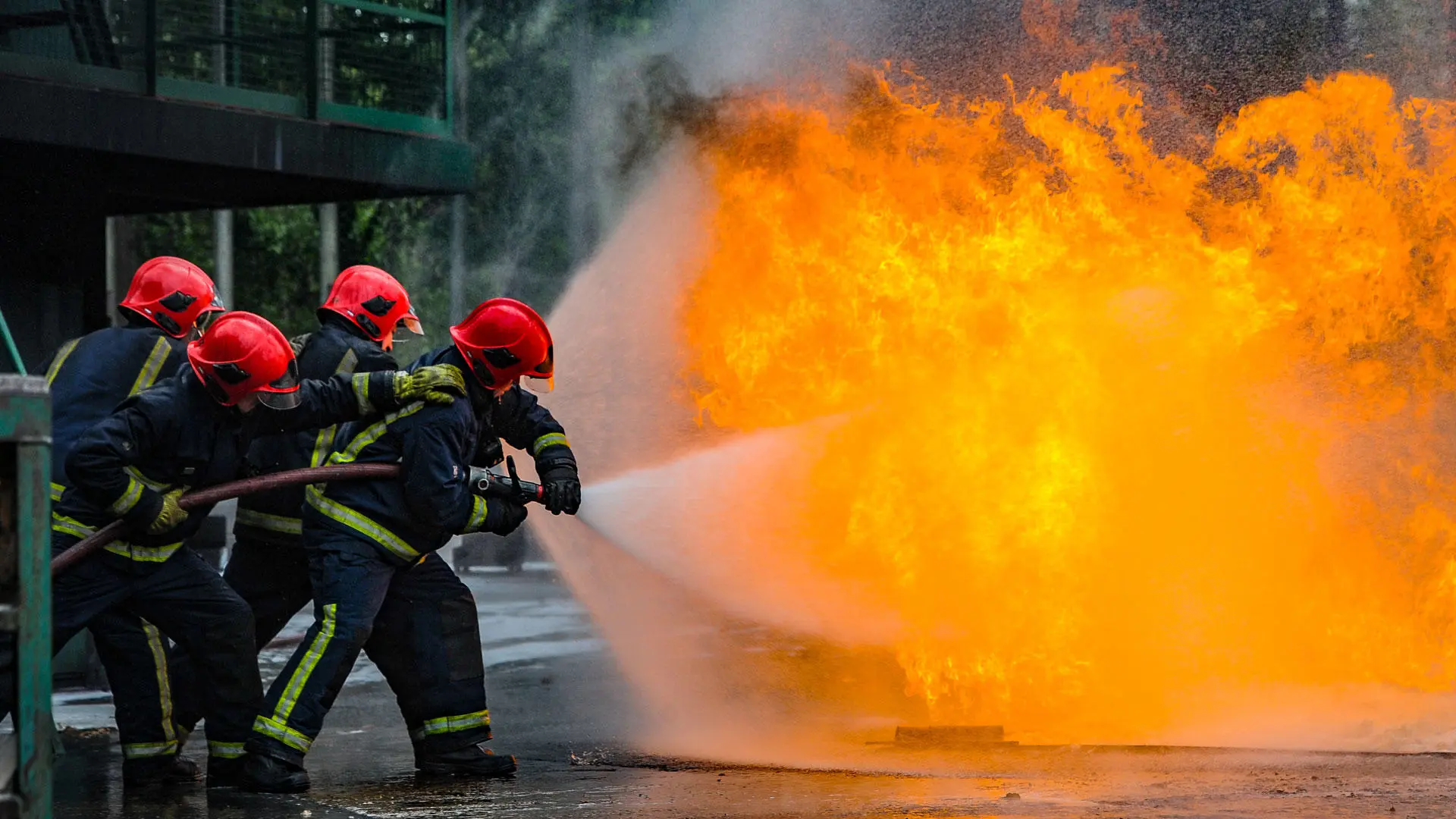
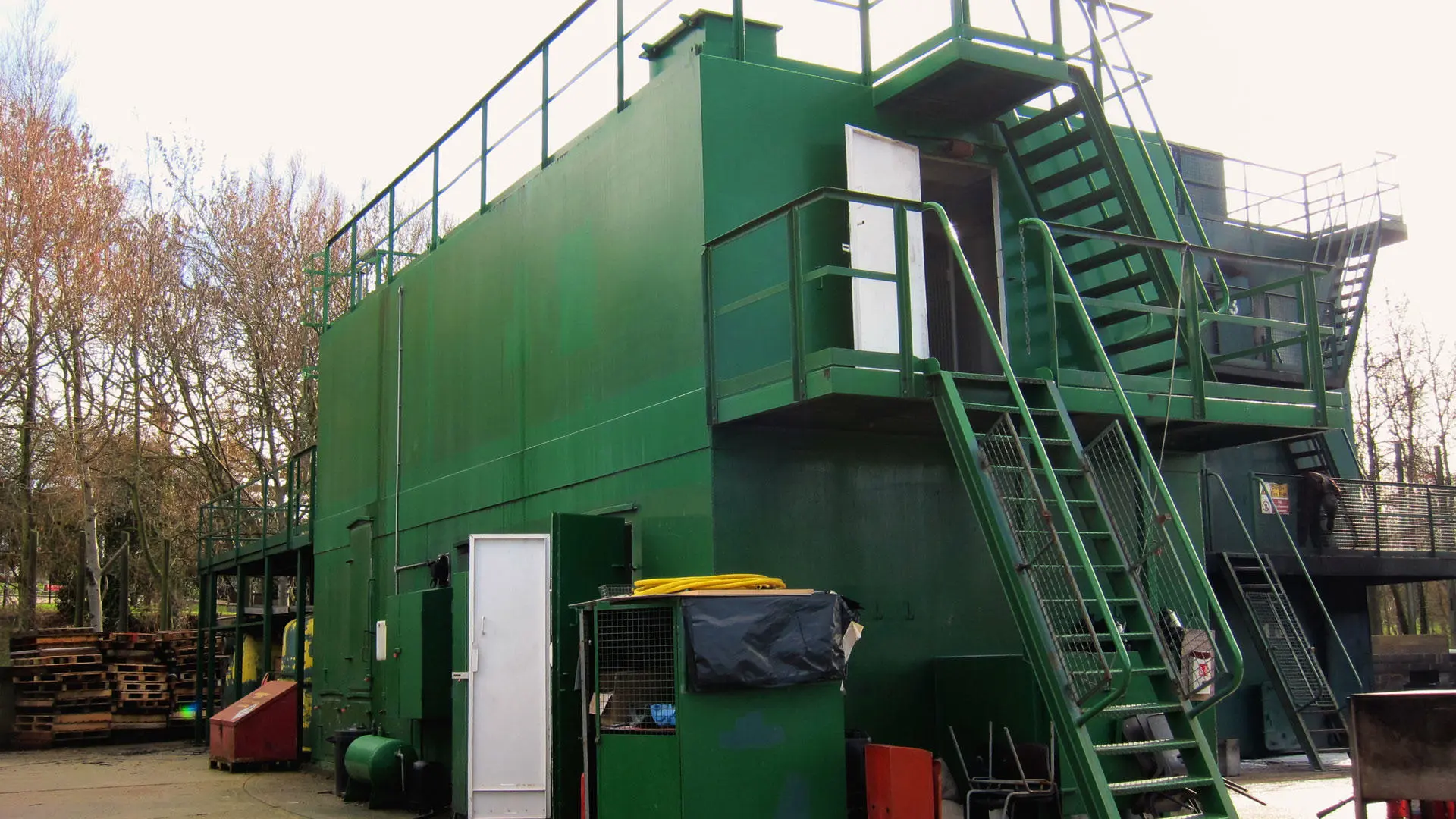
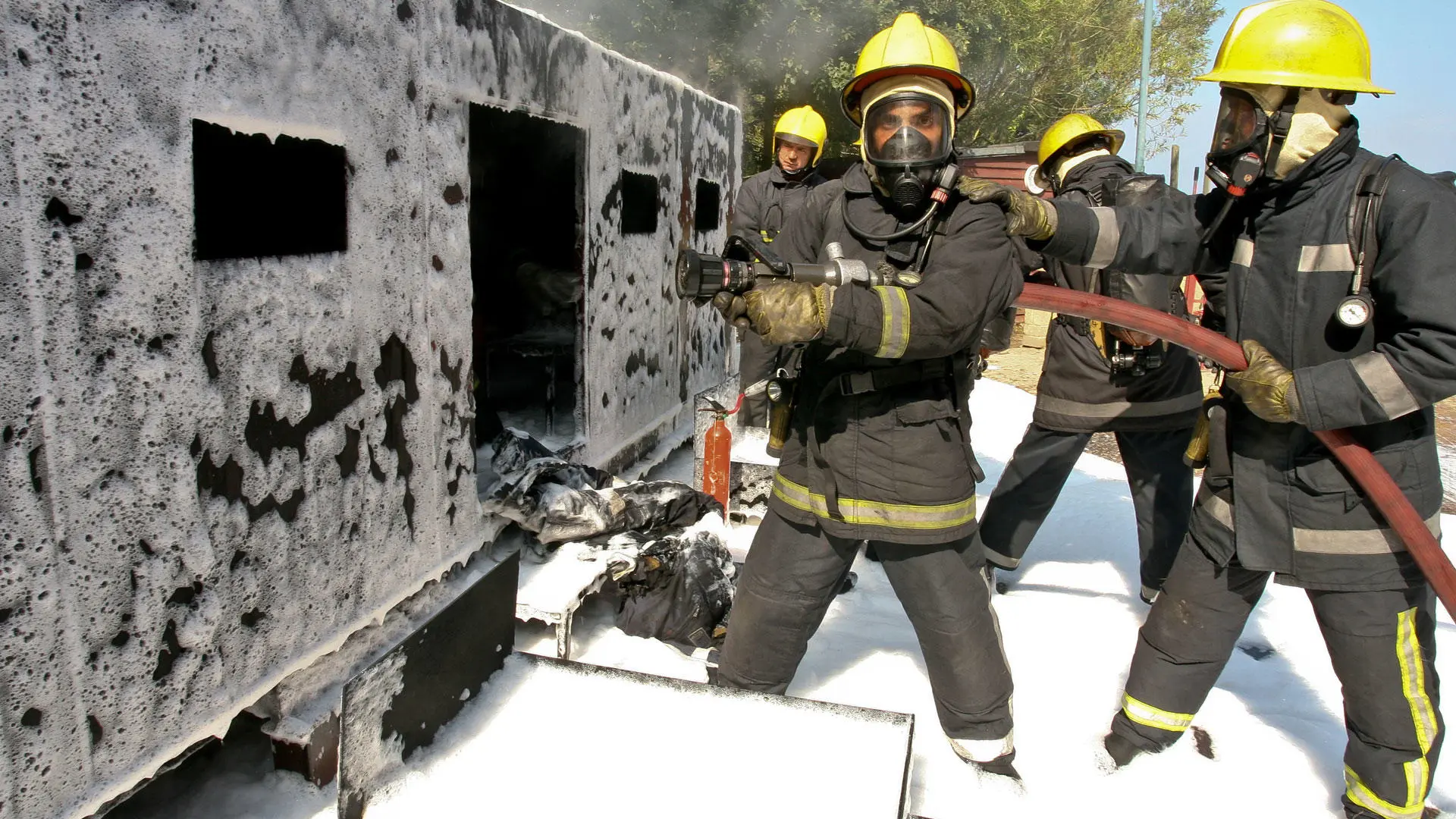
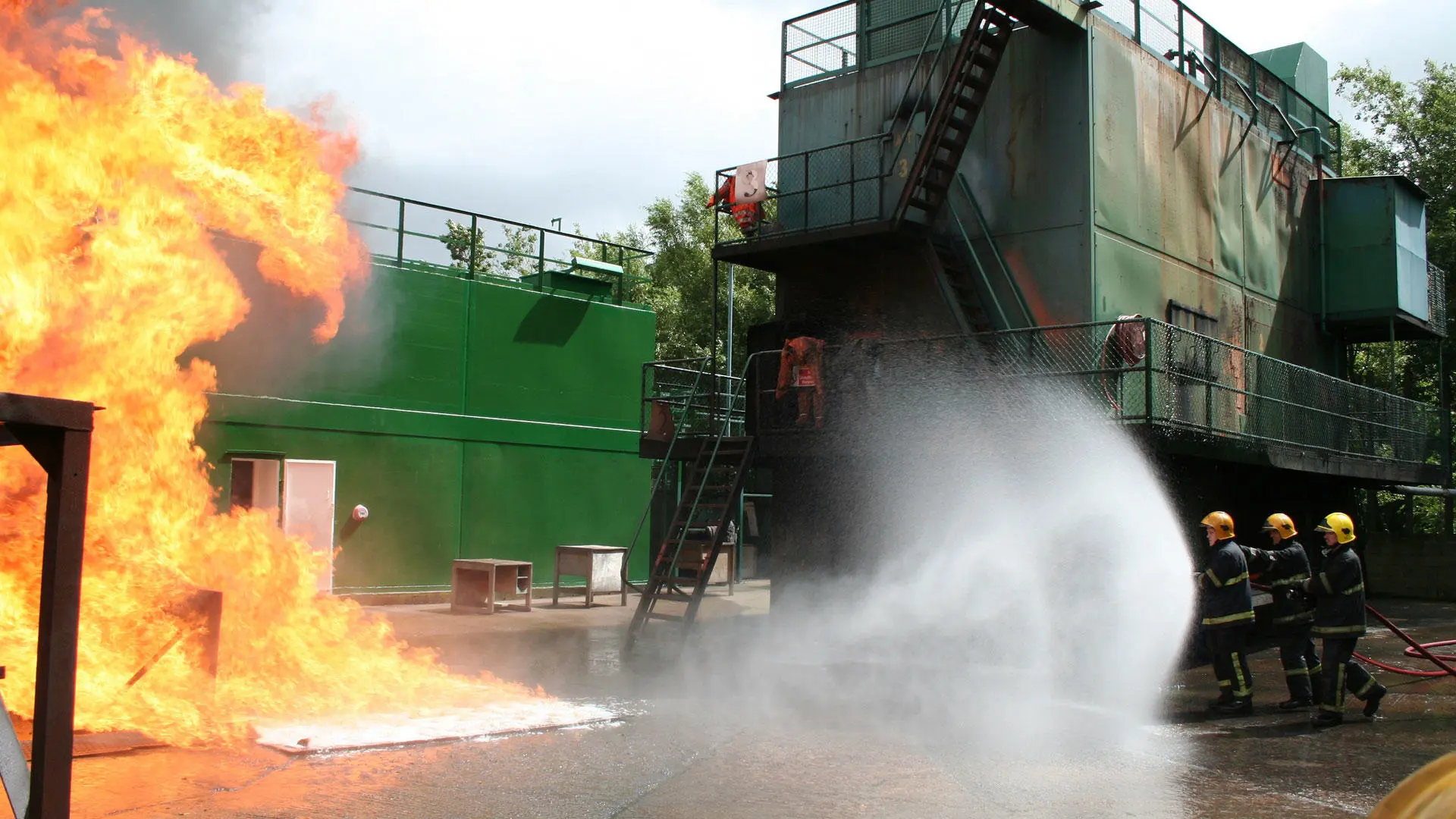
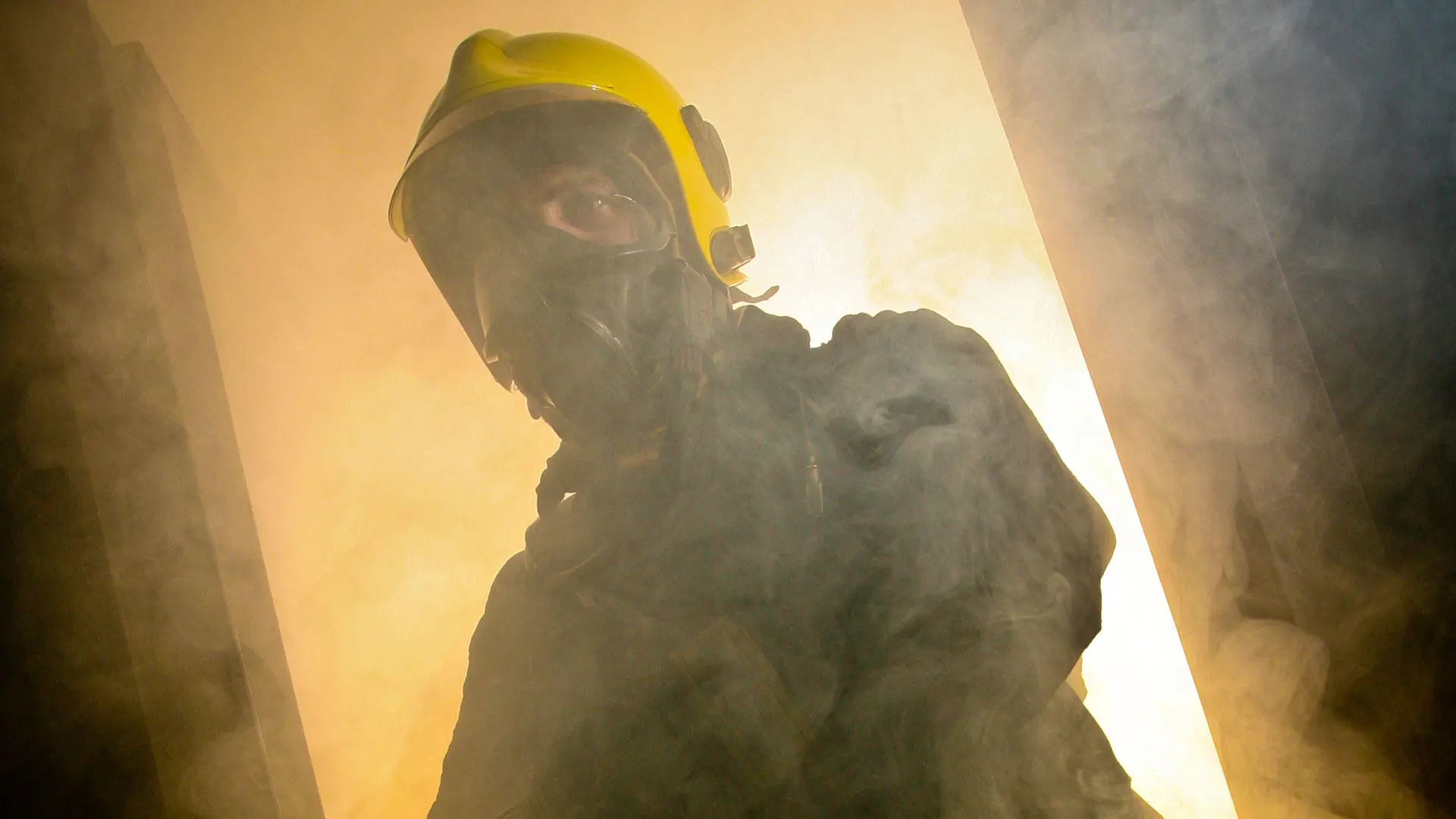
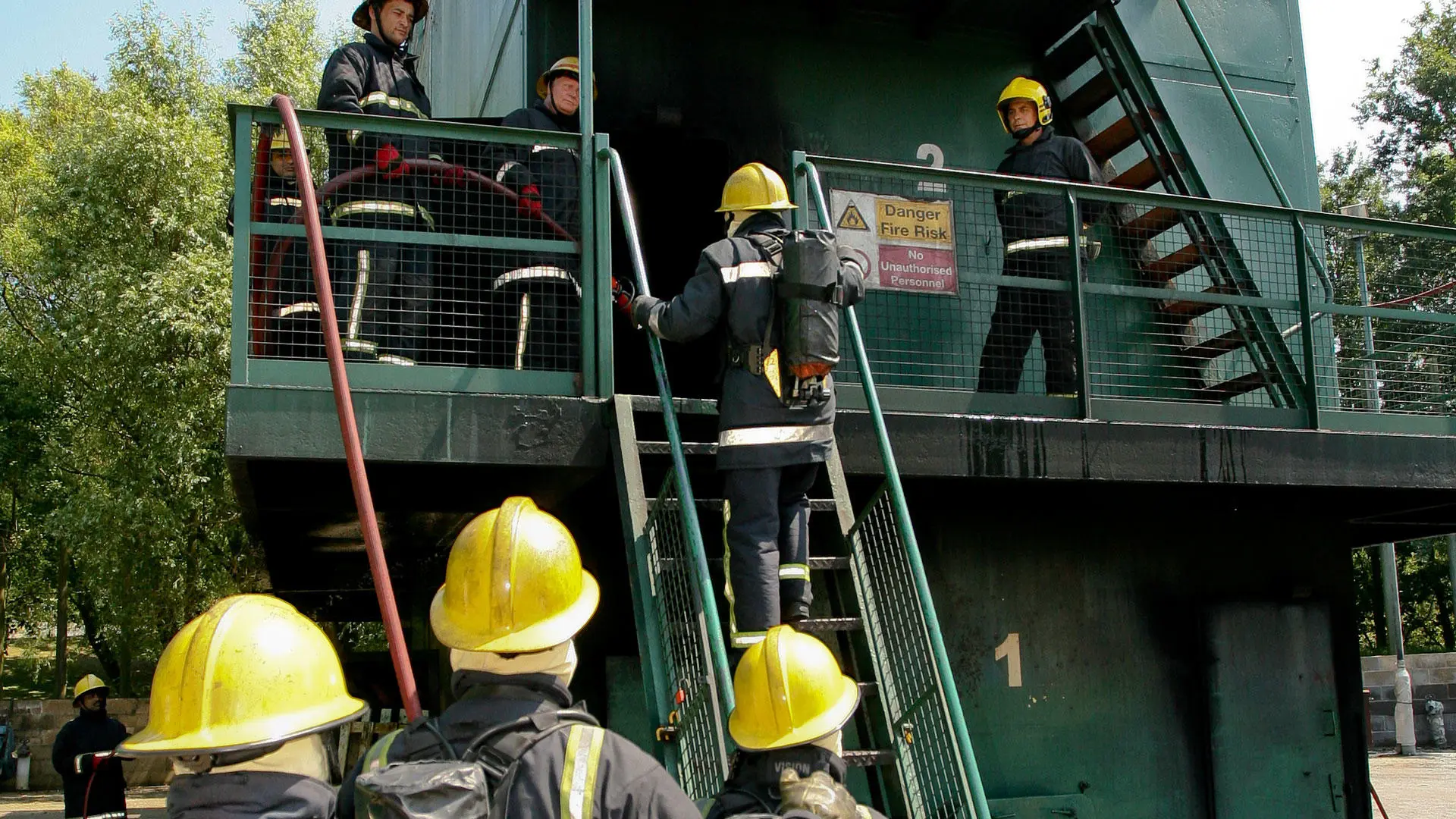
Equipment
- Three-storey steel ship/off shore module for hot fire training.
- Breathing apparatus training unit with a simulated double bottom tank.
- Unit for demonstrating the fighting of fires using fixed installations.
- Fire pit, fire screen and other devices for simulating a variety of fire types.
- LPG training module.
- Helicopter fire fighting and rescue unit.
- Enclosed space training unit.
Courses that use this facility
- BSc (Hons) Nautical Science
- FdSc Nautical Science
- FdEng Marine Engineering
- BEng (Hons) Marine Engineering
- HND Marine Electrical and Electronic Engineering
- BEng (Hons) Marine Electrical and Electronic Engineering




